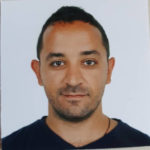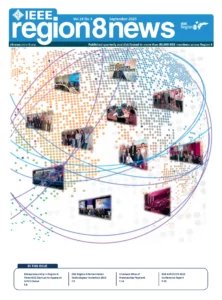IEEE technical Chapters: Frequently Asked Questions (FAQ)
- What is an IEEE Chapter?
- A Chapter is a technical subunit of a Region, one or more Sections, or a Geographic Council established by petition to the parent geographical and technical organizational units. Section 9.6 in the MGA Operations Manual reviews the guidelines for Chapter operation.
- Each unit shall conduct its activities within the IEEE Constitution, IEEE Bylaws, IEEE Polices, IEEE MGA Operations Manual, IEEE Region 8 bylaws and Operations Manual (see here) and other rules externally imposed, which by law affect the membership and activities of IEEE.
- Members of the respective Society/Council automatically become members of the local Chapter.
- A Chapter is a technical subunit of a Region, one or more Sections, or a Geographic Council established by petition to the parent geographical and technical organizational units. Section 9.6 in the MGA Operations Manual reviews the guidelines for Chapter operation.
- What types of Chapters are there in IEEE?
- Within the IEEE MGA framework, there are two types:
- Chapter
- Student Branch Chapter (SBC)
- See SAC section for more information
- IEEE-Eta Kappa Nu (IEEE-HKN) Chapters (which, unlike the traditional Chapters and SBCs, report to IEEE EAB).
- NB! The IEEE HKN type of unit is outside of our subCommittee’s scope.
- Within the IEEE MGA framework, there are two types:
- What does an IEEE Chapter offer? Why is it good to have more Chapters?
- Full access to the resources of a mother Society or technical Council (for a Joint Chapter, access to the resources of all Societies), e.g.
- specialized technical resources
- grants, scholarships
- funding
- participation in committees shaping the future of the field
- Possibility to organize, advertise local technical events to and interactions within the local members of the respective Societies/Councils.
- Funding from respective Societies/Councils for organizing local technical events
- Own independent funding stream within a Section/subSection/Region
- See some of the funding options here
- Access to IEEE Distinguished Lecturers and Speakers from respective Societies/Councils (where the Society pays for the Distinguished Lecturer to come to your country and give talks)
- Please see a guide here
- Possibility to support local conferences with IEEE logo and resources
- Many Societies/Councils afford (pay travel expenses for) the Chapter Chair (or the person delegated by the Chair) to attend its main conference and participate in various learning programs.
- Full access to the resources of a mother Society or technical Council (for a Joint Chapter, access to the resources of all Societies), e.g.
- How to start up/form a new Chapter, or How to change an existing Chapter?
- The process following this diagram (borrowed from an MGA page):

- See here and here for details
- An Organizer* can form a new Chapter or Join Chapter (if one does not currently exist in the Region, one or more Sections, or a Geographic Council), by visiting the IEEE Geographic Unit Formation Policies and Petitions website. Scroll down the page and select the link “Access Petition Form“. When the petition page loads, log in using your IEEE Account credentials (username and password) and select Chapter. Follow the step-by-step instructions to submit the petition.
*An eligible Organizer must be an active IEEE Graduate Student Member or higher for a minimum of six months, a member of the Section, and an active member of the sponsoring society/ies.- starting a new Chapter requires 12 signatures
- starting a new Student Branch Chapter requires 6 signatures
- The petition can be done electronically (see above) or manually.
- What are the key responsibilities of a Chapter Chair?
- ensuring that the Chapter is active and offers services to its members
- running at least 2 technical events per year (more is better)
- ensuring the sustainability of the Chapter’s leadership, i.e. training the next generation of Chapter leadership
- Why is it best to have a complete (3-5 people) leadership committee for a Chapter (or any other organizational unit)?
- Whilst a Chapter may be successfully run by a single Chair, this often leads to problems in the longer term. Having more than one person leading the Chapter enables
- better sustainability in a longer-term (e.g. by chapter leadership team members learning from each other and able to support the events as a team, and having good ready-to-do-excellent-work candidates for the next term)
- broader reach/wider network able to reach more people
- ability to generate more ideas for better events
- ability to distribute tasks, rely on each other and run bigger events
- Whilst a Chapter may be successfully run by a single Chair, this often leads to problems in the longer term. Having more than one person leading the Chapter enables
- What is the annual minimum reporting requirement for a Chapter?
- A technical Chapter needs to have officers and must hold at least 2 technical events per year in order to avoid being dissolved.
- How can a Chapter win an award, e.g. Best Chapter award?
- To qualify for an award, a Chapter needs to do many quality activities (especially technical events attended by many members) and grow its membership
- To apply for an award, the Chapter needs to be nominated. There are different opportunities in existence:
- Most Societies/Councils have award programs
- R8 has “Chapter of the Year” awards program – see https://ieeer8.org/category/awards/
- Some Sections have own award programs
- Can Chapter set its own awards/recognitions for active members?
- Yes, Chapters are encouraged to set up their own award programs. The officiation of such a program may need to be vetted by IEEE.
- How does a Chapter relate to other units of IEEE?
- Chapter serves its local members
- Chapter reports to and can draw resources (funding, speakers, …) from and offer new activities to the respective Society (under the IEEE TA) and Section/subSection/Region it belongs to (under IEEE MGA)
- Overall picture can be found here: R8_TA_relations_higher_committees_v1
- What is and How to establish a Technical/Sister Society Agreement to help increasing activities?
- Please see here for details.
- Sister Society Agreements are designed to promote additional cooperation with external to IEEE organizations in a specific discipline through joint activities. Additionally, in order to promote joint membership, these agreements may also provide discounts on IEEE Society membership fees and Society publications.
- How to determine the IEEE operational unit (OU) code for a Chapter or Student Branch Chapter?
- Please see an example here.
- How can an IEEE eNotice email be sent out to all Chapter members?
- The best and fastest way to submit it is via this form: http://enotice.vtools.ieee.org (accessible to Section and Chapter Chairs). It normally works for all Chapter needs.
- If you need to select your audience manually (i.e. your eNotice requires a special audience or manual processing not supported in the normal form), then this form needs to be used instead: use sites.ieee.org/vtools/enotice-submission-form/. This has recently been replaced by signing into https://enotice.vtools.ieee.org, creating your eNotice and in the special instructions field, you can specify the target audience (e.g. R8 Chapter Chairs and R8 Student Branch Chapter Chairs).
- How can one find out whether more Chapters can be established in a Section?
- The simplest approach is to use IEEE OU Analytics to get this info (it is assumed the user has appropriate access rights). The feature is called “Potential Chapters”. Inside the OU Analytics, go to “Map”, and inside the Maps (otherwise called Geo OU Analysis), go to the tab “Potential Chapters”. Select “Region 8”. Select or enter your Section and see the Societies for which the minimum conditions to establish a new technical Chapters are already satisfied.
- A more complicated but also more comprehensive approach is to download the list of Section’s members (also from IEEE OU Analytics), which includes a record of the membership in Societies (i.e. the column with MEMxxxnnn, where xxxnnn is the Society code, e.g. MEMTEM014). From this, one can count the number of members for each IEEE Society of interest and match this to the minimum requirements for an individual Chapter (12+ members) or a Joint Chapter (12+ members, with at least 3+ members from each relevant Society; please see Section 9.6 in the MGA Operations Manual for further details on the minimum requirements.
- How can one find whether the Chapter is active and how active it has been?
- The IEEE vTools Events/Meetings can be used to determine the meetings registered against the Chapter. The process is simple. Just select your Region (Region 8), your Section, and the Chapter you are interested in, and click the “Search” button. The system will show you the events ran by the Chapter and when they were running. The minimum requirement for an active Chapter is 2 events per year.
- How and when are the Chapters dissolved?
- The Chapters are dissolved following a period of inactivity, i.e. when the minimum requirement (2 technical events per year) is unfulfilled for over a year. The list of inactive Chapters is submitted to the MGA Board by MGA employees by the agenda item deadline. The MGA Board then decides on the dissolution in their meeting. The schedule of their meetings may be found here.
-
Where to find the list of Societies, technical Councils, roster of Society Presidents, Chapter Coordinators etc.?
- The information and instructions on how to obtain details of the leadership are available here: https://ta.ieee.org/contacts-and-rosters#!societies-and-technical-councils
-
- The list of Chapter Coordinators for all IEEE Societies and technical Councils is available via this link:
- Where can I find basic information about Chapters (similar to these FAQs) from MGA perspective?
- Please follow this link: https://mga.ieee.org/resources-operations/geographic-unit/chapter
- Are there Training opportunities / How to Learn how to do this?
- Training is available via the IEEE Center for Leadership Excellence (CLE) and IEEE CLE Learning Library: http://ieee-elearning.org/CLE/ . There, one can find training for volunteers /officers as well as professional development training (in soft skills such as leadership, communications, and management skills. Technical Chapter / Student Branch Chapter officer can click on “Volunteer”, log in, and then click on the “Technical Chapter Chair” or “Student Branch Chapter Chair”, respectively. The overall training usually around 1.5-2 hours and can be done in parts.
- It may also be recommended to access many relevant topics under “Sections Congress” in CLE.
Materials
- ChCsC presentation (made in the R8 ChCsC meeting held in Malta on 2019-03-15), describing how we are starting the committee and some statistics for March 2019: IEEE R8 ChCsC presentation for Malta meeting on 15 Mar 2019 (external version)




 IEEE Region 8 News is produced by volunteer editors with contributions from members from all over Region 8. The Editor-in-Chief of Region 8 News is Maja Matijasevic (Croatia Section).
IEEE Region 8 News is produced by volunteer editors with contributions from members from all over Region 8. The Editor-in-Chief of Region 8 News is Maja Matijasevic (Croatia Section).
